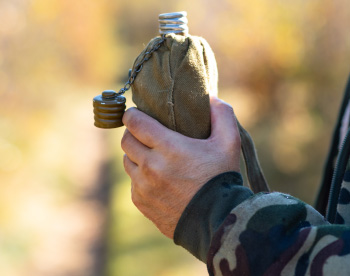FREE CONSULTATION
FREE CONSULTATION
Camp Lejeune exposed over a million Marines, Sailors, civilian workers, and their families to toxic water.
If you spent any time at the base – even as little as 30 days – between 1953 and 1987 and developed cancer, you may be eligible for financial compensation.

All consultations are free and confidential. No fees are charged unless you are awarded compensation.
All fields are required unless indicated as optional.
Those who were exposed to the contaminated water at Camp Lejeune from mid-1953 through 1987 now have a settlement option that may quickly resolve qualifying claims. Announced on September 6, 2023, by the Department of Justice and the Department of the Navy, this elective option has been instituted to provide a streamlined claims process for a limited list of diagnoses and pre-established settlement offers.
We believe many of our clients will receive settlements greater than this settlement option.
The settlement options for qualifying diagnoses of kidney cancer, liver cancer, non-Hodgkin’s lymphoma, leukemia, and bladder cancer, would receive offers between $150,000 and $450,000 depending upon the length of time spent at Camp Lejeune.
Qualified individuals with multiple myeloma, Parkinson’s disease, kidney disease, systemic sclerosis or scleroderma would receive settlements ranging from $150,000 to $400,000, also depending on how long they were at the base.
Claims involving death would receive an additional $100,000.
Although not all Camp Lejeune diagnoses qualify for this "Elective Option" we are actively representing many individuals who suffered other illnesses related to this exposure.
The Camp Lejeune Honoring Our PACT Act grants the opportunity for individuals including service members, residents, family members, workers, and civilians who spent a minimum of 30 days at Camp Lejeune between 1953 and 1987 to pursue justice for illnesses resulting from the polluted water supply.
Regardless of whether your Veterans Administration benefits were approved or denied, you may qualify for compensation if you were afflicted with any of the following conditions:
The government enacted a new law, granting individuals affected by the contaminated water at Camp Lejeune the right to file a lawsuit for illnesses resulting from their exposure. Families and individuals who served, worked, or lived at Camp Lejeune between 1953 and 1987 were exposed to toxic chemicals in the water supply.
It is estimated that over a million people used the water during this time period, not knowing of its contamination. In 1982, water tests uncovered the presence of carcinogenic substances that inflict severe and long-term harm on human health. Unfortunately, by that time it was too late to reverse the consequences already set in motion. This resulted in many residents and workers at Camp Lejeune experiencing miscarriages and birth defects and being diagnosed with cancer and even Parkinson’s disease.
The Camp Lejeune Honoring Our PACT Act of 2022 now empowers individuals affected by the contaminated waters of Camp Lejeune to pursue legal action for the resulting illnesses they have endured.


Established along the Atlantic Coast of North Carolina in 1941, Camp Lejeune served as a large and busy military base during that era. Similar to many other bases of the time, it discharged oil and industrial pollutants into the storm drains. The lack of stringent environmental regulations led to military chemists performing insufficient testing of Camp Lejeune’s drinking water until 1980. By 1984, news of this contamination became public knowledge.
Over the course of decades, residents of Camp Lejeune unwittingly consumed and used water that scientists believed to be highly contaminated. The levels of solvents in the tap water were 280 times higher than what is currently considered to be safe.
Don’t delay, as the time to file a claim is limited. Take action now by filling out the form above to request a free case review.
We will contact you for a free case review.
You will only be charged fees if you are awarded compensation.
If you or a loved one were at Camp Lejeune between 1953 and 1987 and were later diagnosed with cancer or a serious illness, you may qualify for financial compensation. Reach out today to explore your legal options and discuss your potential courses of action.
